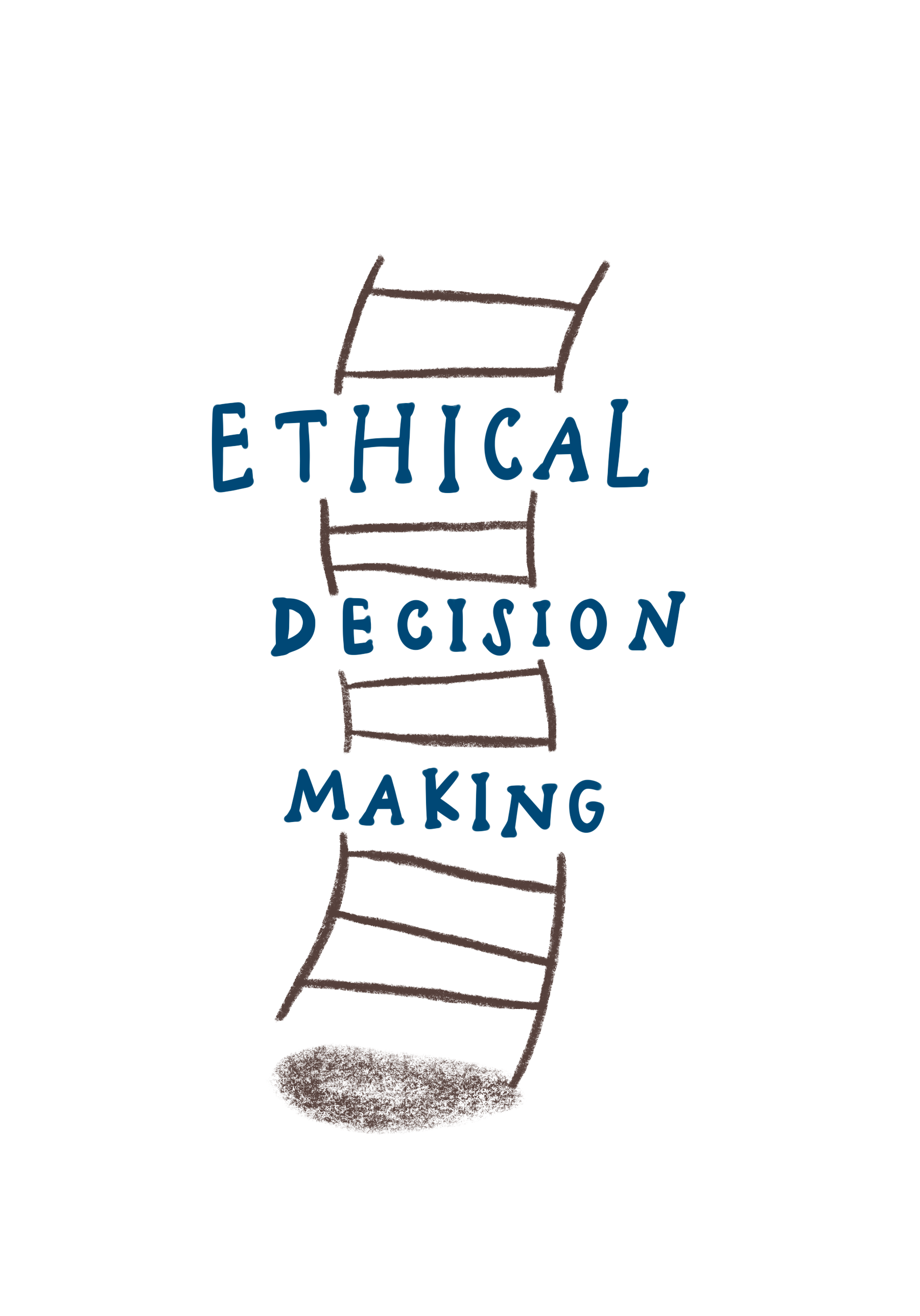The process of ethical decision making is a complex one, one that extends beyond awareness. Even when we are aware of what's right, it's tempting to look left.Ethical Decision Making Process
When we think of doing the right thing, we often pair that thought with knowledge. We say "oh it's because of the lack of education or the lack of awareness and that's why there's this issue and that issue". But based on Rest's Ethical Framework (1986), we need a lot more engagement than knowledge to do the right thing. The following steps outline Rest's theory of ethical decision making process (1986).
1. Recognise moral issue
2. Make moral judgement
3. Establish moral intent
4. Engage in moral behaviour
According to the theory, awareness alone does not bring about actual behavioural change. To encourage change (presumably a moral change), the following factors from #2 - #4 need to follow awareness or recognition of a moral issue.
Rest's theory is just one out of many theories on ethical decision making process out there, but I find the idea behind it fascinating and so I thought I'd share my experience in which I feel mirrors the theory.
In my personal life, there have been many instances where I "recognised" or knew that a certain action may not be right but I looked the other way. There are (sadly) way too many examples I could think of but I'm only going to talk about one example that is most vivid to me and that involves Ugg boots.
Growing up in the tropical climate, as cliché as it sounds, I'd always hoped to one day experience the cold winter of the west and to participate in its fashion trends. Fast forward to my first year of University where I landed in England, the first thing I got was the controversial pair of Ugg boots. Being an avid reader of teen magazines, I was familiar with the controversy of Ugg boots; some regard it as iconic, some regard it as ugg(ly). But once I had my heart set, I wasn't going to let what Justin Bieber thought of Ugg boots to deter me (yes Bieber said it was ugly during an interview).
It would be one thing if that was all the controversy surrounding Ugg boots that I was aware of. But it was not. At the time, I was passively following PETA (People for the Ethical Treatment of Animals) enough to be aware of Ugg's involvement in animal cruelty.
In that instance, my awareness alone was not enough to stop me from buying the pair and supporting the industry.
This is not to say that I was aware of the cruelty and yet still felt it was "right" or "okay" for sheep to be cruelly slaughtered for their skin. I was aware and would be opposed to it even at the time, but i guess only if the sheep were to be slaughtered right then and there in front of me...?
So do you see how problematic my thought process was? Problematic, because we are all capable of this thought process. In Psychology, they call it "cognitive dissonance". We, human beings, have these mental tools that we can use to rationalise literally every single action that we take, especially the unethical ones, and that is what let us fall sleep at night. Just like the saying "out of sight, out of mind". How do you think we survived humanity's guilt this long as a species?It also wasn't until years and years later, when my style outgrew the cruelty, that my moral compass followed suit.
My support for an industry that contributes to animal cruelty is just one of many examples. I could have used 'my support for single use plastic consumption that I know to destruct the environment' or 'my support for fast fashion that I know to violate workers and human rights', when we have access to more ethical alternatives. But I also don't want this to become an article that overwhelms, how 'nothing is going to change anything'.If nothing matters, then there's nothing to save.
Instead, I am a big advocate for doing the best you can.
This is also not to say the issue of animal cruelty deserves more weight than the environmental destruction issues or human rights violation issues. Everything needs help. With a closer look, we'd realise how all the issues have root causes that are very much intertwined & intersected (thus, the need for intersectionality and to approach issues from an intersectional lens).
All this talk about ethical and unethical behaviours, I don't intend to appear virtuous, better or above anyone else. If anything, I'll be the first to admit that I am far from a virtuous person and that explains why I have such an abundant never ending life stories and experiences to share. But everyday I'm trying to be a better human.
In the process of showing how little impact awareness actually has on our overall behaviours, I've ended up highlighting its importance more than ever. This is because, even though awareness alone does not bring about actual behavioural change; without awareness, we would find our knees buried even deeper in the quicksand of immoral behaviours.
Through this piece, I want to highlight how layered and complex the process of doing the right thing can be and how that is all the more reason to make an effort to do the right thing.
This is why you'll aways be hearing me preach about the importance of being aware and being informed and why many people have taken activism to social media to raise awareness and educate.
We have to make the effort.
Especially since it's very easy to look the other way.

